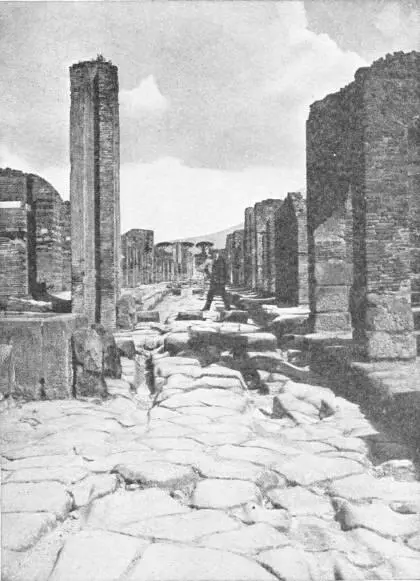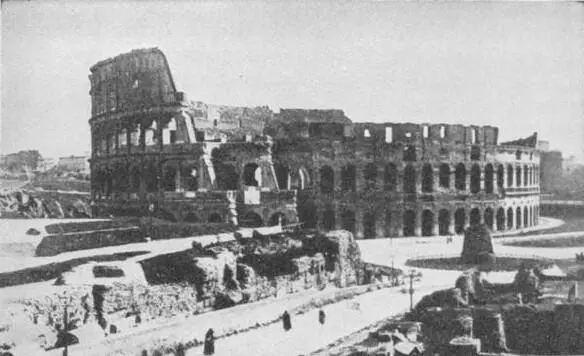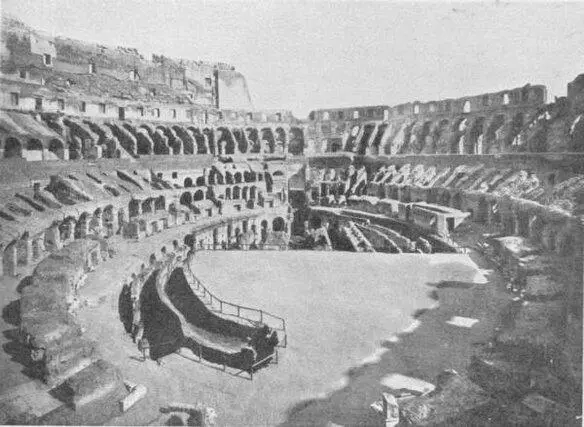Herbert Wells - A Short History of the World
Здесь есть возможность читать онлайн «Herbert Wells - A Short History of the World» весь текст электронной книги совершенно бесплатно (целиком полную версию без сокращений). В некоторых случаях можно слушать аудио, скачать через торрент в формате fb2 и присутствует краткое содержание. Год выпуска: 2011, Жанр: История, на английском языке. Описание произведения, (предисловие) а так же отзывы посетителей доступны на портале библиотеки ЛибКат.
- Название:A Short History of the World
- Автор:
- Жанр:
- Год:2011
- ISBN:нет данных
- Рейтинг книги:4 / 5. Голосов: 1
-
Избранное:Добавить в избранное
- Отзывы:
-
Ваша оценка:
- 80
- 1
- 2
- 3
- 4
- 5
A Short History of the World: краткое содержание, описание и аннотация
Предлагаем к чтению аннотацию, описание, краткое содержание или предисловие (зависит от того, что написал сам автор книги «A Short History of the World»). Если вы не нашли необходимую информацию о книге — напишите в комментариях, мы постараемся отыскать её.
A Short History of the World — читать онлайн бесплатно полную книгу (весь текст) целиком
Ниже представлен текст книги, разбитый по страницам. Система сохранения места последней прочитанной страницы, позволяет с удобством читать онлайн бесплатно книгу «A Short History of the World», без необходимости каждый раз заново искать на чём Вы остановились. Поставьте закладку, и сможете в любой момент перейти на страницу, на которой закончили чтение.
Интервал:
Закладка:

POMPEII
“Note the ruts in roadway worn by chariot wheels.”
The slave system had spread to most industries and to every sort of work that could be done by gangs. Mines and metallurgical operations, the rowing of galleys, road-making and big building operations were all largely slave occupations. And almost all domestic service was performed by slaves. There were poor free-men and there were freed-men in the cities and upon the country side, working for themselves or even working for wages. They were artizans, supervisors and so forth, workers of a new money- paid class working in competition with slave workers; but we do not know what proportion they made of the general population. It probably varied widely in different places and at different periods. And there were also many modifications of slavery, from the slavery that was chained at night and driven with whips to the farm or quarry, to the slave whose master found it advantageous to leave him to cultivate his patch or work his craft and own his wife like a free-man, provided he paid in a satisfactory quittance to his owner.
There were armed slaves. At the opening of the period of the Punic wars, in 264 B.C., the Etruscan sport of setting slaves to fight for their lives was revived in Rome. It grew rapidly fashionable; and soon every great Roman rich man kept a retinue of gladiators, who sometimes fought in the arena but whose real business it was to act as his bodyguard of bullies. And also there were learned slaves. The conquests of the later Republic were among the highly civilized cities of Greece, North Africa and Asia Minor; and they brought in many highly educated captives. The tutor of a young Roman of good family was usually a slave. A rich man would have a Greek slave as librarian, and slave secretaries and learned men. He would keep his poet as he would keep a performing dog. In this atmosphere of slavery the traditions of modern literary criticism were evolved. The slaves still boast and quarrel in our reviews. There were enterprising people who bought intelligent boy slaves and had them educated for sale. Slaves were trained as book copyists, as jewellers, and for endless skilled callings.

THE COLISEUM, ROME
Photo: Underwood & Underwood

INTERIOR OF THE COLISEUM AT IT APPEARS TO-DAY
But there were very considerable changes in the position of a slave during the four hundred years between the opening days of conquest under the republic of rich men and the days of disintegration that followed the great pestilence. In the second century B.C. war-captives were abundant, manners gross and brutal; the slave had no rights and there was scarcely an outrage the reader can imagine that was not practised upon slaves in those days. But already in the first century A.D. there was a perceptible improvement in the attitude of the Roman civilization towards slavery. Captives were not so abundant for one thing, and slaves were dearer. And slave- owners began to realize that the profit and comfort they got from their slaves increased with the self-respect of these unfortunates. But also the moral tone of the community was rising, and a sense of justice was becoming effective. The higher mentality of Greece was qualifying the old Roman harshness. Restrictions upon cruelty were made, a master might no longer sell his slave to fight beasts, a slave was given property rights in what was called his peculium , slaves were paid wages as an encouragement and stimulus, a form of slave marriage was recognized. Very many forms of agriculture do not lend themselves to gang working, or require gang workers only at certain seasons. In regions where such conditions prevailed the slave presently became a serf, paying his owner part of his produce or working for him at certain seasons.
When we begin to realize how essentially this great Latin and Greek-speaking Roman Empire of the first two centuries A.D. was a slave state and how small was the minority who had any pride or freedom in their lives, we lay our hands on the clues to its decay and collapse. There was little of what we should call family life, few homes of temperate living and active thought and study; schools and colleges were few and far between. The free will and the free mind were nowhere to be found. The great roads, the ruins of splendid buildings, the tradition of law and power it left for the astonishment of succeeding generations must not conceal from us that all its outer splendour was built upon thwarted wills, stifled intelligence, and crippled and perverted desires. And even the minority who lorded it over that wide realm of subjugation and of restraint and forced labour were uneasy and unhappy in their souls; art and literature, science and philosophy, which are the fruits of free and happy minds, waned in that atmosphere. There was much copying and imitation, an abundance of artistic artificers, much slavish pedantry among the servile men of learning, but the whole Roman empire in four centuries produced nothing to set beside the bold and noble intellectual activities of the comparatively little city of Athens during its one century of greatness. Athens decayed under the Roman sceptre. The science of Alexandria decayed. The spirit of man, it seemed, was decaying in those days.
XXXVI
RELIGIOUS DEVELOPMENTS UNDER THE ROMAN EMPIRE
THE soul of man under that Latin and Greek empire of the first two centuries of the Christian era was a worried and frustrated soul. Compulsion and cruelty reigned; there were pride and display but little honour; little serenity or steadfast happiness. The unfortunate were despised and wretched; the fortunate were insecure and feverishly eager for gratifications. In a great number of cities life centred on the red excitement of the arena, where men and beasts fought and were tormented and slain. Amphitheatres are the most characteristic of Roman ruins. Life went on in that key. The uneasiness of men’s hearts manifested itself in profound religious unrest.
From the days when the Aryan hordes first broke in upon the ancient civilizations, it was inevitable that the old gods of the temples and priesthoods should suffer great adaptations or disappear. In the course of hundreds of generations the agricultural peoples of the brunette civilizations had shaped their lives and thoughts to the temple-centred life. Observances and the fear of disturbed routines, sacrifices and mysteries, dominated their minds. Their gods seem monstrous and illogical to our modern minds because we belong to an Aryanized world, but to these older peoples these deities had the immediate conviction and vividness of things seen in an intense dream. The conquest of one city state by another in Sumeria or early Egypt meant a change or a renaming of gods or goddesses, but left the shape and spirit of the worship intact. There was no change in its general character. The figures in the dream changed, but the dream went on and it was the same sort of dream. And the early Semitic conquerors were sufficiently akin in spirit to the Sumerians to take over the religion of the Mesopotamian civilization they subjugated without any profound alteration. Egypt was never indeed subjugated to the extent of a religious revolution. Under the Ptolemies and under the Cæsars, her temples and altars and priesthoods remained essentially Egyptian.
Читать дальшеИнтервал:
Закладка:
Похожие книги на «A Short History of the World»
Представляем Вашему вниманию похожие книги на «A Short History of the World» списком для выбора. Мы отобрали схожую по названию и смыслу литературу в надежде предоставить читателям больше вариантов отыскать новые, интересные, ещё непрочитанные произведения.
Обсуждение, отзывы о книге «A Short History of the World» и просто собственные мнения читателей. Оставьте ваши комментарии, напишите, что Вы думаете о произведении, его смысле или главных героях. Укажите что конкретно понравилось, а что нет, и почему Вы так считаете.








